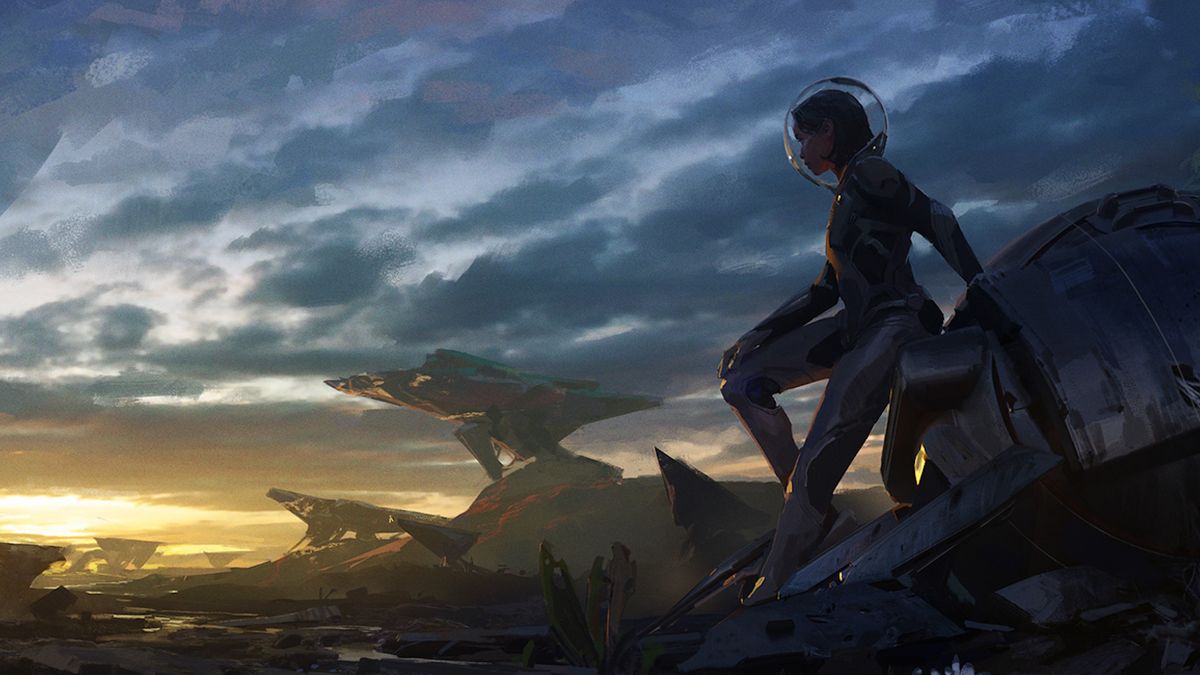World
Embrace the World’s Miraculous Absurdity

This spring, my wife and I looked at the sky from our backyard. We marveled at ribbons of solar wind—launched by our sun more than 93 million miles away—that lit up as they smashed against the earth’s magnetosphere. The northern lights reached into the American South in a magnificent display of cosmic violence. In that moment, I was struck: life on this earth is beautiful even if tragically temporary.
Lounging in a cocoon of atmospheric serenity, we enjoy the simple joys of iced coffee and exact change while our planet sits amid the apocalyptic violence of black holes and exploding stars. How does that even make sense? That’s the beauty of it all: it doesn’t.
Nonsense Without the Creator
If we consider existence in the universe apart from the Creator, it feels beyond absurd. The number of coincidences that must combine to yield life on earth, let alone whatever else may be out there, is unfathomable. The only plausible alternative to the Creator one might adopt is an unlimited multiverse theory where every possible iteration of our universe from chaos to order exists somewhere out there like different books on a shelf; we just happen to be conscious in this one. Apart from such a theory, the odds of our universe organizing itself as it is are, pardon me, astronomical.
Think about the simple beauty of human life in comparison to the scale and timeline of our existence. That we care about a football team, or mow our lawns, seems ridiculous. Why should we bother making our beds when the fabric of the universe could (theoretically) unravel at any moment? To care so deeply about our speck of existence feels genuinely insane apart from eternity and its Author.
Consider Camus
I read French philosopher Albert Camus’s The Myth of Sisyphus in high school, and I recently revisited it. Though Camus was an absurdist atheist philosopher, I was struck by how much I agree with him. Camus’s thesis is, effectively: Life is meaningless apart from whatever meaning you give it, so give it meaning and do your best to enjoy it. This is all a farce anyway, so make the most of it. This probably sounds ridiculous to most Christians. But apart from hope in eternity, isn’t Camus’s perspective the sanest option?
To care so deeply about our speck of existence feels genuinely insane apart from eternity and its Author.
Which is more foolish: Attempting to give absolute meaning to life apart from the opportunity for eternity, or embracing the utter pointlessness of life apart from eternity and doing your best to enjoy its absurdity?
The former is more foolish than the latter. Only the fool ascribes meaning to life when it’ll all fade to endless black with the shutdown of a vital organ or the swelling of our closest star. Given those two choices, it’s much wiser to recognize the absurdity of life and enjoy it anyway. But by God’s grace, those aren’t the only two options. In reality, there’s matchless meaning provided by the endlessness of eternity with God in Christ.
Even Camus recognizes this. He writes in The Myth of Sisyphus,
I am well aware that that higher liberty, that freedom to be, which alone can serve as a basis for truth, does not exist. Death is there as the only reality. . . . What freedom can exist in the fullest sense without assurance of eternity?
We’re wise to consider Camus, but even more, we should concur with the Teacher.
Concur with the Teacher
In the book of Ecclesiastes, the Teacher reminds us that God’s world, though it’s indeed God’s, is undeniably broken and unfulfilling in itself. So the Teacher says to enjoy the life God has given you because it’ll all be over soon enough.
Enjoy life with the wife whom you love, all the days of your vain life that he has given you under the sun, because that is your portion in life and in your toil at which you toil under the sun. Whatever your hand finds to do, do it with your might, for there is no work or thought or knowledge or wisdom in Sheol, to which you are going. (Eccl. 9:9–10)
Ecclesiastes tells us that life apart from God is a vapor. Gain everything. Taste everything. Let the world serenade you with its pleasures. Climb every mountain and experience every joy, but you’ll only feel emptier than you did when you began. Without the hope of an eternally, unconditionally loving God, the wonder of existence rings hollow.
Remember Your Creator
Then, at the end of the book, in 12:1–7, the author tells us to consider our Creator while we’re young—before we grow old, cynical, angry, and jaded. This is wisdom, for it’s easier to appreciate the glory of the dust when you’re playing in it than when you’re soon to become it.
In reality, there’s matchless meaning provided by the endlessness of eternity with God in Christ.
No freedom can exist without the assurance of eternity because without it, we’re enslaved to death and life is meaningless. But for the Christian, the beautiful reality that death isn’t the end, that God’s promises will be fulfilled, serves as a present comfort. By God’s grace, the One who conquered death has called us to himself and given us meaning beyond measure in our everyday moments.
Eternity and its Author make everything meaningful. The universe’s expansiveness speaks to God’s boundless glory. The seemingly frivolous tasks of making beds, recycling plastics, and laughing with friends all move from meaningless ways to fill time before annihilation to weighty ways to embody Christ’s love to a world in need.









